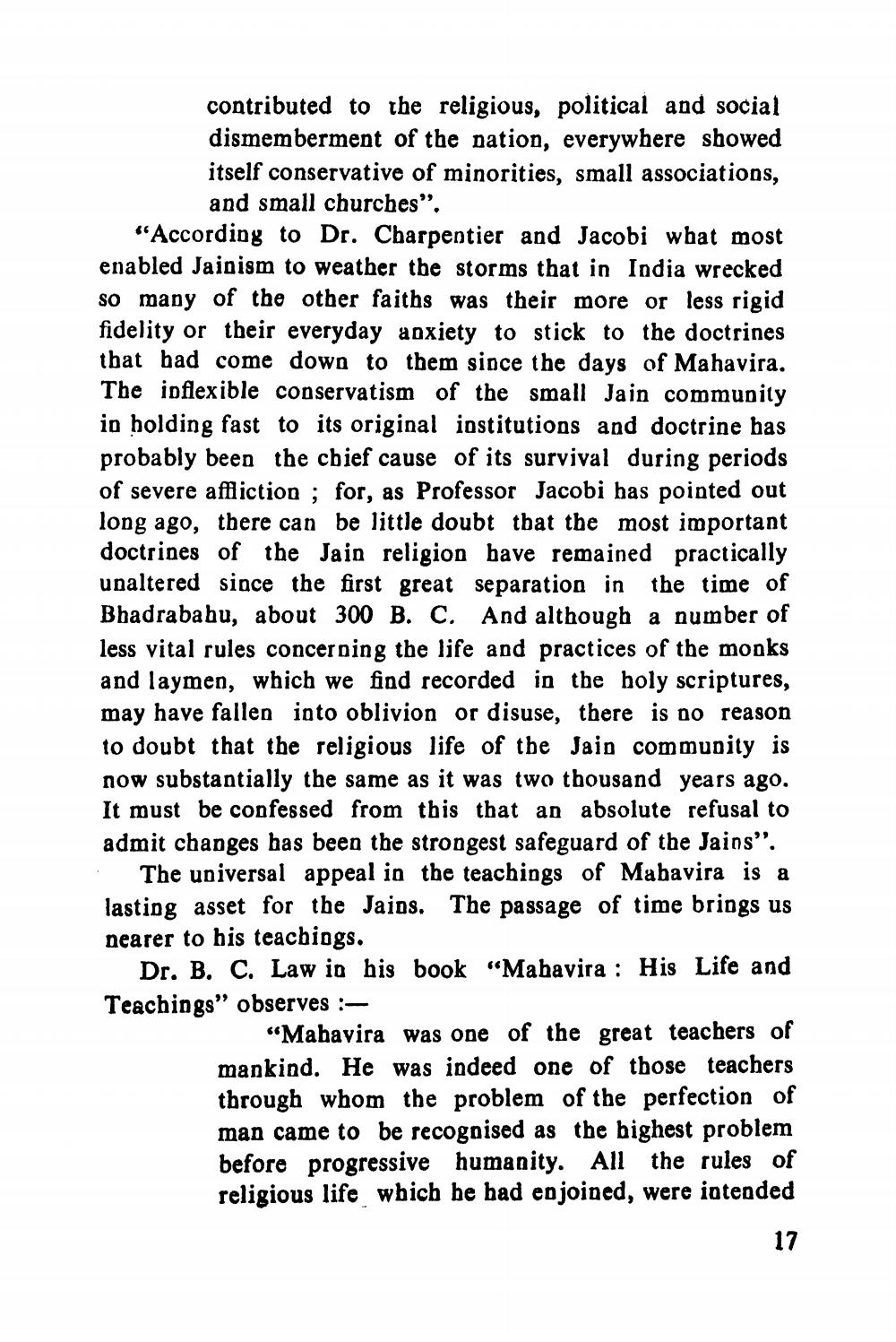________________
contributed to the religious, political and social dismemberment of the nation, everywhere showed itself conservative of minorities, small associations,
and small churches". “According to Dr. Charpentier and Jacobi what most enabled Jainism to weather the storms that in India wrecked so many of the other faiths was their more or less rigid fidelity or their everyday aoxiety to stick to the doctrines that bad come down to them since the days of Mahavira. The inflexible conservatism of the small Jain community in holding fast to its original institutions and doctrine bas probably been the cbief cause of its survival during periods of severe afliction ; for, as Professor Jacobi has pointed out long ago, there can be little doubt tbat the most important doctrines of the Jain religion have remained practically unaltered since the first great separation in the time of Bhadrababu, about 300 B. C. And although a number of less vital rules conceroing the life and practices of the monks and laymen, which we find recorded in the holy scriptures, may have fallen into oblivion or disuse, there is no reason to doubt that the religious life of the Jain community is now substantially the same as it was two thousand years ago. It must be confessed from this that an absolute refusal to admit changes has been the strongest safeguard of the Jains”.
The universal appeal in the teachings of Mabavira is a lasting asset for the Jains. The passage of time brings us nearer to his teacbiogs.
Dr. B. C. Law in his book “Mahavira : His Life and Teachings" observes :
“Mahavira was one of the great teachers of mankind. He was indeed one of those teachers through whom the problem of the perfection of man came to be recognised as the highest problem before progressive humanity. All the rules of religious life wbich he had enjoined, were iotended
17




